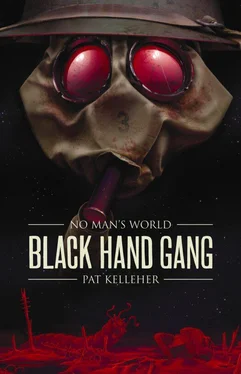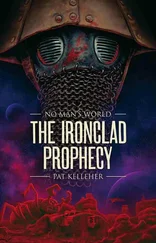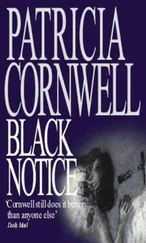ATKINS STOOD IN the fire bay as dawn grazed the sky; Ginger and Porgy closest to him, Gutsy, Pot Shot, Mercy and Lieutenant Everson to their left, Lucky, Half Pint, Gazette, Ketch and Jessop to their right. C Company’s other three platoons on either side of them. Behind them in the communication and cover trenches, A and B companies readied themselves for the second wave of the attack. In front of him on the firestep the scaling ladder stood up against the brushwood revetment and sandbagged parapet. Atkins stared at it with deep resentment. How could something so mundane hold such sway over his life? He hated it. Every rung left him more exposed, lessened his chances. It might as well have been a ladder to the gallows.
From along the trench Corporal Ketch glowered at them. Atkins knew he wanted them to funk it and he wasn’t going to give him the satisfaction, but to Atkins’ left Ginger was fidgeting uneasily, like a child on the verge of tears.
“I heard they got summat new lined up for Fritz today; them watchercallems, Boojums they used up Flers,” said Pot Shot.
“What, here? Oh, what I wouldn’t give to see one of them,” said Gutsy.
“Boojums?” said Ginger.
“Like prehistoric monsters they is,” said Porgy. “They knock down trees and eat houses. Bullets and bombs just bounce off ’em, I’ve heard,”
“Jerry up!” said Half Pint, pointing up into the sky. Glad of the diversion, Atkins looked up with the rest into the calm autumn dawn. Above, he saw a great long train of tall white clouds stretching almost from horizon to horizon moving in a slow stately procession across the sky. There, beneath their great white bellies but high above the scattered smudges of black air burst, were two small dots flying toward the British lines.
“Albatrosses, I’ll be bound,” said Porgy, shielding his eyes.
“There!” called Lucky. Atkins turned. Three small black dots were making for them slowly, almost casually, flying out across the British lines to meet them. The Royal Flying Corps. Atkins willed them on as if wishing could give them speed enough to smash into the enemy like jousting steeds of the air, dashing their foes from the sky and sending them plummeting to earth. Instead they drifted slowly toward each other, almost lackadaisically, then seemed to weave in and around each other, dancing like mayflies on a summer evening. Atkins watched the dumb show, spellbound. One of them left a dark soft streak across the sky as it began a slow balletic tumble towards the earth. Atkins held his breath.
“One of ours or one of theirs?” he asked nobody in particular as he craned his head.
“Dunno,” said Jessop.
“Wait,” said Mercy squinting his eyes. “It’s one of theirs. I think.”
Grasping for a sign, any sign, and fanning a small flame of hope for the day ahead, a ragged cheer went up along the line. They joined in.
Ketch growled and took a step towards them. “Quieten down. How can you listen out for the enemy, making a racket like that?”
“Well it’s not like they’re going to attack at the same time we are, is it?” said Mercy.
But the mood was successfully punctured and the cheer subsided. Satisfied, Ketch returned to his position with a smirk.
Indistinct barks came down the line.
“Fix bayonets!” bellowed Hobson.
Atkins slotted the handle of the seventeen inch blade onto the end of his rifle. He’d done it so often he could do it in his sleep.
Then they waited.
EVERSON LOOKED AT his wristwatch. The second hand swung its way inexorably round to zero hour. Ten minutes to go. He licked his lips to moisten them for the pea-whistle that waited in his hand. Everything that could be done had been done. He could feel the weight of the revolver in his hand but his world had shrunk to that small disc on his wrist, to that needle-fine finger rotating, as if winding up the thread of his life onto some celestial spool.
Once more he had to lead his men into battle. Except that this was never battle; no glorious charge, no smashing of shields or clash of swords. There was little honour or glory here; only death, despair, pain and guilt. You never saw the enemy. Death strode the field, no longer cutting men down with a scythe, but with a threshing machine, gathering in its harvest in commercial quantities. Death had been industrialised.
Everson had never wanted responsibility. When he joined up he’d just wanted to be one of the men, a small cog in a big machine, but when your father was twice mayor of Broughtonthwaite and owner of the largest brewery in town there were bigger wheels turning against yours. So he’d been given a commission. Men he’d known before the war, men whose families had been intertwined with his for generations, now depended on him for their lives and he didn’t want the responsibility. But now that it was his he wasn’t going to shirk it. He’d done his damnedest to keep them alive through the bloodshed of the preceding summer, and by God, he’d do the same today.
He ran a finger around the inside of his collar and unconsciously began chewing his lower lip.
THE ARTILLERY BOMBARDMENT began. It started in No-Man’s Land and, every minute, crept forwards another hundred yards towards the German lines — a barrage designed to shield the advancing soldiers from enemy fire. They would then move behind the line of smoke and shells, with the huge armoured hulks of the ironclad landships crushing paths through the German wire. At least that was the theory.
The ground began to shake. A loud rumbling filled the air. Atkins felt himself flinch involuntarily, expecting a shell burst or trench mortar, but the sound went on and on, increasing in volume. Dirt started dancing off the sandbags on the parapet.
“What the hell is it?” said Porgy, looking round. Down in the trench it was difficult to tell where the sound was coming from.
Along with the deep bass roar came another noise now, a squeaking and whining, a repetitive metallic clank.
“Blood and sand!” said Atkins as, several bays down, a fearsome metal monster belching white smoke from its back rolled across the reinforced bridge over the trenches into No Man’s Land.
It was an ironclad landship; armour-plated, its side-mounted sponsons seemingly bristling with guns. He’d never seen anything like it, not even in the adventure stories he read. On the side he could make out a painted identity number, I-5, and then underneath, painted in a scruffier hand, the legend, HMLS Ivanhoe .
“Boojums!” yelled Pot Shot ecstatically.
“Tanks! Read about ’em on leave,” said Mercy. “The papers were full of ’em. Oh, we’re going take that wood now. Fritz’ll shit himself when he sees these coming at him, eh Ginger?”
Ginger managed to crack a weak smile but then, as soon as the huge great armoured rhomboid rolled over the firing trench, he began flinching and jerking.
Not now , thought Atkins. Not now .
If Ginger fled the Battle Police would get him. If they didn’t, Ketch certainly would. This close to a show, he wouldn’t get the courtesy of a court martial before they marched him out to a stake and his mates had to shoot him.
“Ginger, quiet!” But before he could say anything more to calm the boy there came the dull repetitive clang of a cracked warning bell and the cry of: “Gas! Gas! Gas!”
The Germans, now aware that something was going off and having the prevailing wind in their favour, had opened their gas canisters and, heavier than air, the sluggish green cloud had begun to slue down the incline toward the British trenches.
At once, Atkins put his rifle down, took off his helmet and began to fumble at the canvas bag on his chest, undoing the buckle to get at the P. H. gas helmet inside. Well, the Quarterblokes called it a helmet. The men called it “the goggle-eyed bugger with the tit”. What he pulled out was a cloth hood. He flapped it to open it out and pulled it on over his head, tucking its neck down into his shirt collar to form a rudimentary seal. He bit on the rubber clamp inside and took a couple of breaths, in through the nose and out through the tube in his mouth with its distinctive red rubber valve. Peering out through the greenish eye-pieces, he picked up his battle bowler and placed it back on his head before feeling around for his rifle.
Читать дальше












